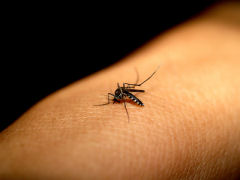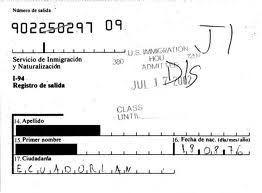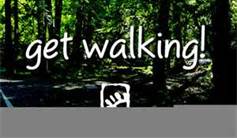Dear Au Pairs, I wanted to take a second today to thank you for working so hard. I do know that you have a very hard job. Your job, although hard, is really one of the most valuable I know. You have an impact on the little people you care for. They are learning from you, even when you are not teaching. They learn to smile when days are hard. They learn to speak softly even when you are angry. They learn to take the news of a mistake graciously and make it better next time. They learn that the telling the truth is always the best thing to do. They learn about you! They also learn that our country is not the only country. We may be different , but we are all alike in the most important of ways. You are so important to your host family and your host children. Sometimes we may forget to tell you! If you are having a hard day, I hope you will know the next one will be better! Thanks for all that you do! Your counselor, Andrea
Yearly Archives: 2013
Rosh Hashanah


Wishing our Jewish host families, au pairs, community counselors, colleagues and friends a very Happy New Year. Rosh Hashanah begins at sundown this evening.
Here is a great site for children including information about the holiday traditions, games, word searches, Hebrew vocabulary and crafts. http://www.akhlah.com/jewish-holidays/roshhashanah/
How To Obtain a Georgia Driver’s License
How to Obtain a Georgia Driver’s License
Information about what to take and where to go is at the end of the this document.
All non US citizens who are present in the state for more than thirty days are considered residents and are required to obtain a Class C Driver’s License in order to drive in Georgia. https://dds.georgia.gov/information-non-us-citizens
A written test must be taken and then another appointment must be made to take the roads test. At the time of the written test, the au pair will be given instructions to make a road’s test appointment. These can also be found on the DDS website. www.dds.ga.gov
The Roads test does not have to be taken in the same location. Please research all available appointment close enough to drive from the host family home. A licensed driver will need to drive the Au pair to the Road’s Test, if she has been issued a temporary permit.
Class C Driver’s License
Basic Requirements
- Applicant must be at least 18 years old.
- Pass Knowledge Exam. ( This exam can be taken in Spanish, if requested)
- Pass Road Skills Test. ( An au pair will drive with official riding in car with au pair. Must parelle park, reverse into parking space and make left and right proper turns, brake properly at stop signs and use proper speed. Obey all traffic signs along route)
- Pass Vision Exam.
Documents Required
Documentation showing your identity and legal presence in the USA:
- DS2019 form ( Verify that the form is signed at the bottom by Au pair and shows current host family address)
- Passport
- I-94 card (print out from the cbp website).
- Social Security Card
- Confirmation of placement letter provided by APIA before the au pair left her country.
- International driver’s permit
- Original country license ( this should be returned to you).
- Two forms of proof of residence ( see below for what to use).
Two forms of proof of residential address are also required.
- Recommended:A Confirmation of Placement letter from APIA ( Provided by APIA before the Au pair left her country) This has her name and the host family name and address.
- A bank statement with au pair name and the host family address. The statement must be the current month.
- A piece of mail from a federal government agency. This can be an order of postal stamps. When this arrives, save the mailing with au pair name and host family address. www.usps.gov
- The letter and envelope that arrived with the Social Security card detailing au pair name and current address.
- A letter from the au pair insurance company with au pair name and the host family address. This could be a bill, an explanation of benefits regarding a claim or other information.
WHERE TO GO:
These are the locations Most often used. Some may be too far from your location.
All are open Tuesday to Friday. Some are open on Saturdays 8am-12pm. The offices will be closed on holidays. CHECK the hours of operation for the specific office BEFORE you go.
Alpharetta- 1575 Maxwell Road Alpharetta, GA 30009 Saturday 7:30am 12pm
Canton right off 575 behind library- Brown Industrial Parkway, Suite 200 Canton GA. 30114
Cumming 400 Aquatic Circle Cumming GA. 30040 Saturday 8am-12pm
Marietta 1605 County Services Pkwy Marietta, GA 30008 Saturday 7:30am
Gainsville 1010 Aviation Blvd Gainesville, GA 30501 Saturday 8:00 AM – 12:00 PM
Cartersville 1304 Joe Frank Harris Pkwy Cartersville, GA 30121 Saturday 8:00am-12:00pm
Kennesaw-Saturday7:30-12pm 3690 Old 41 Hwy NW Kennesaw, GA 30144
Norcross/Peachtree Corners- Saturday 7:30 to 12pm 2211 Beaver Ruin Rd Norcross, Georgia 30071
Information obtained at www.dds.ga.gov
Andrea McMains July 16, 2019
Taking an education course is important!
Taking an education course is important!
The education component of the au pair program is a requirement of the State Department of the United States. The State department gives authorization for all au pair programs to exist. When an au pair does not achieve her requirement, this puts all au pair agencies at risk. Completing your education hours is an important part of being an au pair and is required by your contract with Au Pair In America. Taking a course will provide yet another level of experience during your year and yields many skills that you can use to further your personal goals. You may also make new friends and professional contacts! I hope you enjoy your educational courses. If you need assistance finding a course or have questions, please call or email your counselor.
Some Important Tips:
- Any course can be taken as long as it is taught from a college, university or technical college. Only those schools approved by the State department can be accepted. All of the schools listed on your resource page on the au pair web-site are accepted http://www.aupairinamerica.com/state/georgia.asp
- Your counselor can clarify any questions about a school.
- The only online course currently being accepted by the State department is the UCLA au pair advantage online course. NO other on line course can be accepted.
- No courses that require long distance travel are accepted by the State Separtment. This would be a course offered in a different state that requires a flight to travel.
- 72-80 hours of education is required for standard au pairs.
- 144-160 hours for Educare au pairs.
- For a second year au pair, 36-40 hours is required for a six month extension and 72-80 hours for a nine or twelve month extension.
- Credits and hours are different. Count the hours you are in a classroom.
- At the end of your course, send your community counselor your documents showing the name of the school and the hours that you have achieved. Check your certificate. Some certificates do not show the number of hours. If the hours are not present on the certificate, you will need a letter from the school stating how many hours you have achieved. This information is needed by your counselor to insure your end of year completion bonus and flight home.
- Host families reimburse tuition costs and costs of related materials (books and supplies) up to $500 for the first year. EduCare companions are reimbursed up to $1000 for the first year. If it will cost you more than $500 (or $1000 for EduCare) to meet the requirement, you must pay the additional expense, so plan carefully.
- Your host family is required to provide transportation, including gasoline, parking, or public transportation costs (if applicable) to and from classes in your community. The cost of transportation is in addition to the $500/$1000 allocated to tuition and related fees. It is your host family’s responsibility to provide transportation or cover the transportation costs until you complete your educational requirement, even if the $500 education allowance has already been spent.
- To extend your first au pair term, you will need to have proof of 72 hours. Send the documentation to your community counselor as soon as possible. You should plan to have your education requirement finished at the time you request an extension. This happens approximately three months before the end of your first term. Au pair In America requires 72 hours to be able to extend your au pair term. Without 72 hours, Au Pair In America will not accept your application to extend and you must go home at the end of your first year.
If you want to extend, All proof of education must be given to your counselor before your deadline to extend. Approximatley three months before the end of your year.
Your counselor is the best person to ask questions about your education requirement. Courses and colleges are constantly changing. Your counselor is always researching new and exciting courses that are appropriate for you. If you are aware of a new resource, please let your counselor know!
For more information about your education requirement visit http://www.aupairinamerica.com/resources/life_in_the_us/education.asp#1
What au pairs need to know about mosquitoes and their bites.
The happy days of summer also brings along the itchy bites of mosquitoes! Especially this summer, due to the large amount of rain we have experienced. Here is some information about mosquitoes and their bites that you may find helpful.

Bites from mosquitoes carrying certain viruses or parasites can cause severe illness. Infected mosquitoes in many parts of the world transmit West Nile virus to humans. Other mosquito-borne infections include yellow fever, malaria and some types of brain infection (encephalitis). The prevalence of these diseases depends on the geographic location. Certain areas of the world carry a greater risk of contracting these diseases than others. Therefore, when travelling (especially in tropical areas), do some research to determine the risk. This will allow you to determine what threats exist from mosquito bites and other insects and possibly make a treatment for a mosquito bite unnecessary.
Mosquito Bite Symptoms
After the bite occurs, humans require some sort of mosquito bite treatment in order to ease the symptoms that occur. A mosquito bite usually results in redness and minor local swelling around the mosquito bite site. Itching is also very common and tends to last longer than the swelling, which subsides after a few hours. The itching is caused by a skin reaction to the mosquito’s saliva. These symptoms usually occur soon after the mosquito bite has occurred.
After many bites, some people become rather insensitive to them and their skin barely reacts. However, for others the mosquito bite symptoms become more severe with more bites. In fact, some people are considered allergic to mosquito bites and these individuals would definitely benefit from a mosquito bite treatment.
Unlike allergic reactions to bee stings or wasp stings, where an allergic response can cause immediate death, this same response from a mosquito bite is very rare. Instead, symptoms of an allergic response to a mosquito bite involve more significant swelling of the skin with sometimes very large hives or welts forming, more redness at the bite site, and extreme itching. These symptoms tend to last much longer than in non-allergic individuals, sometimes lasting two or three days. In more severe cases, blistering and bruising may also be the response. Overall, it is a much more uncomfortable and painful situation for the victim and a bite treatment becomes important.
American Mosquito Control Association (AMCA), an international organization of nearly 2,000 public health professionals, formed in 1935. Recommends the following:
Mosquito Bite Prevention
Mosquito bites are annoying for individuals, but often no mosquito bite treatment is used. However, because of the possibility of contracting one of the above mentioned diseases, it is very important to avoid getting bitten as much as possible. Prevention is the best treatment.
In order to reduce the risk of being bitten:
- Apply insect repellent containing DEET (N,N-diethyl-meta-toluamide) when outdoors during mosquito season. Read the precautions of the product carefully since these products can irritate the eyes, etc.
- Wear shirts with long-sleeves, long pants, a hat, shoes, and socks when outdoors. Use of mosquito netting is also recommended in areas with higher concentrations of mosquitoes. Spray repellent on clothing because mosquitoes will bite through thin clothing.
- Wear light colored clothing, since dark colored clothes attract more mosquitoes.
- Avoid wearing scented products. Perfumes, etc. will attract mosquitoes.
- Avoid times when these insects are more likely to bite such as early morning and evenings.
- Reduce the number of mosquitoes in outdoor areas by emptying sources of standing water. Mosquitoes lay their eggs and breed in these areas.
- Report dead birds found to authorities so that they can be checked for West Nile Virus.
Following these steps will go a long way to preventing bites and the subsequent need for a treatment.
Mosquito Bite Treatment
In order to get relief from the mosquito bite symptoms, a mosquito bite treatment is required. A treatment for mosquito bites involves washing the affected areas with soap and water to ensure no infections develop and to help reduce the itch. Applying soap directly to the bite has been suggested as an itch remover. Use a cold compress on the bite site to help alleviate the itch, swelling, and redness. A bite treatment may also involve some of the procedures listed below.
- Making a paste of baking soda and water and spreading it over the bites.
- Using calamine lotion or a topical anesthetic to help relieve the itch and pain.
- Itching can also be relieved by using a one percent hydrocortisone cream.
- Anti-inflammatory medication such as Ibuprofen will help with the swelling and pain.
- The use of antihistamines is also a useful mosquito bite treatment because they will alleviate the itch and swelling.
- Aloe vera gel is an effective all natural mosquito bite treatment. This compound reduces swelling and itching and soothes the affected area.
- A mosquito bite treatment is also available in the form of commercial products specifically designed for this purpose.
Not scratching the mosquito bite area is an effective treatment for a mosquito bite. Scratching prolongs the swelling, itch, and discomfort, and can open the skin and cause an infection. If your mosquito bite becomes red and swollen and if the area around the bite feels warm to the touch, the bite may be infected. If this condition persists and does not respond to a standard mosquito bite treatment, then consult a physician
If unusual symptoms develop about five days after being bitten by a mosquito, then a standard mosquito bite treatment is ineffective and a visit to a physician should be a priority. Unusual symptoms can include severe headaches, fever, skin rashes, nausea and vomiting, disorientation, chills, and muscle pains.
http://www.bing.com/news/search?q=helpful+tips+to+prevent+mosquito+bites&qpvt=helpful+tips+to+prevent+mosquito+bites&FORM=NWRFSH
New process for I-94 cards.
Information Document – I-94 card
A new automated arrival/departure process for foreign visitors (au pairs) involving the I-94 card has been implemented at all air and sea ports of entry.
What is the I-94 card?
The I-94 card was formerly a paper document stapled into an au pair’s passport used as evidence of a non-immigrant’s lawful admission to the United States and to document legal status while in the United States for the length of her approved stay. See below for an example.

What is the new process?
· Creation of an electronic arrival I-94 record during admission process at air or sea ports of entry.
· No more paper I-94 card issued.
· CBP official (Customs and Border Control) will scan passport, creating an electronic I-94 record using the name appearing on the J-1 visa in the passport.
· CBP official will place a stamp in the au pair’s passport indicating date of admission, class of admission (J-1) and the date that the traveler is admitted until (D/S).
· DS 2019 form will no longer be stamped at immigration. Only the passport will be stamped.
· Au pairs will receive an information sheet telling them how they can access their I-94 card information online (www.cbp.gov/I94). I-94 card information will immediately be uploaded to the immigration database. No more waiting time. Information from the electronic I-94 will be available no more than 24 hours after the au pair’s arrival in the U.S. Au pairs can go to CBP website (www.cbp.gov/I94) to print down a paper document showing their I-94 card number or access their I-94 card number which can be used for social security cards, I-9 verification form and driver’s licenses.
CBP official will stamp and annotate the au pair’s passport with the date of admission, class of admission (J-1) and admitted until date (D/S – duration of stay). All stakeholders (DMV, social security offices) have been notified of this new process.
Additional Information
· Currently au pairs must still wait at least 12 business days before going to apply for a social security card. This process will change shortly, and we will notify you as soon as the change goes into effect. Once the change goes into effect, au pairs will be able to go and apply for a social security card the day after they arrive at their host family home. They must have the print-out of their I-94 card number.
· To print out I-94 card information from the www.cbp.gov/I94 website, au pairs will need biographical information, their passport number, country of issuance, date of entry, class of admission. The name should be spelled exactly as it appears on the J-1 visa in the passport. If it is a name with multiple last names, there should not be any space between the names.
Automatic visa revalidation–
· If au pair arrived after 5/20/2013, the Customs and Border Patrol officer will have the admission record available and will use that electronic record for readmission.
· If au pair arrived prior to 5/20/2013, she needs to show I-94 card upon reentry into the United States.
Arrival process
· Will stay the same with the exception of the electronic I-94 card. CBP officer will review documents, including passport, visa and DS 2019. Change will be that au pairs will receive a stamp in their passports and no paper I-94 card.
Stakeholders have been involved and engaged in the process. Social security offices will accept the entry stamp in the passport and DMV has been provided with all the information through the SAVE system. Every office should be aware of change in process. It is still recommended that au pairs print out their electronic I-94 card number for social security and DMV offices.
If, when leaving the US at the end of the year, the au pair has the paper I-94 card stapled into her passport, she will turn it in upon departure. After automation, there will be no form to turn in.
Revalidation process for au pairs will not change. If the au pair entered on a paper I-94, she will continue to use the paper I-94.
If an au pair is having problems printing out the electronic I-94 card number, please contact Evelyn Blum at eblum@aifs.com.
I-94 card information update. 6/19/2013
Summer Fun For Au pairs and Host kids!

Are you ready for those long, lazy days of summer. Having school age kids at home during the day can be challenge for an au pair or a mom!
The key to success is having lots of activities lined up to keep those kids busy. Don’t forget about the booklet entitled “150 things to do with your kids”. This was given to you at orientation. The booklet is jammed packed with fun ideas.
Many movie theaters will also have free morning movies. Check the theater closest to you for free shows and times.
Our Pinterest site will also have weekly camp au pair activities beginning next week http://pinterest.com/aupairinamerica/summer-fun/

How about Water Piñatas! This idea is featured on our pinterest site. This looks like a cool way to spend a hot day!

Au pair In America Cultural Fair and Food'n Fun Festival

The Atlanta Clusters of Au Pair In America are delighted to join with the Dunwoody/ Sandy Springs Community Assistance Center on May 19th for their Food’ n Fun festival from 1:00pm to 4:00pm The festival is an effort to raise awareness, food and funds to combat hunger and homelessness in our community.
Au Pair in America will present our Au pair Cultural Fair during the festival. This is a wonderful opportunity to share the American spirit of volunteerism with our au pairs while they share their country pride! 
All Au pairs will be grouping together to showcase their countries in the Au pair In America Cultural Fair. Host families from all clusters are invited to participate. General admission is a donation of $5.00 or a bag of groceries per person.
Families and au pairs are encouraged to join the walk portion of the festival. This is a great way to support the efforts of the community action center.
Registration and information is below.
Food `n Fun Festival. http://www.ourcac.org/index.php?option=com_content&view=category&layout=blog&id=78&Itemid=151
Join us for CAC’s 1st Annual Food `n Fun Festival Sunday, May 19, 2013 from 1pm-4pm
at the Morgan Falls Athletic Complex
in Sandy Springs! Event Location: Morgan Falls Athletic Complex, 450 Morgan Falls Rd, Sandy Springs GA
Flag Day Competition For Au pairs!


Global Awareness is sponsoring its second annual Flag Day Contest. Au pairs can submit a creative expression of your own country’s flag. You can use any materials. For ideas see the Photos and Essays section of www.globalawareness.com All entries must be received by June 5th and will be announced on Flag Day, June 14 
Check out the FB link: https://www.facebook.com/aupairamerica
Why do Au pairs gain weight in the USA?
Why does an au pair gain weight during her year?
Did you know that during your au pair year, most au pairs will gain an average of 15 to 20 pounds! That is enough for most people to change two sizes bigger. The added sugar and other sweeteners in our American food is one reason for the gain. Au Pair’s also eat more restaurant, take out and drive through foods. These are higher in calorie and fat. Your change in schedule and less time to exercise all combine to make an au pair gain weight. Add that to getting a little older and the scene is set for gaining weight! The good news is you can prevent this and even start a healthy lifestyle that will continue well beyond this one au pair year.
Just 30 minutes of walking, five times a week is enough to improve your overall health from decreasing the symptoms of diabetes and depression to increasing bone density to preventing cancer. And, you will not gain weight!
Walking gives you more muscle tone, which is what we all want for swimsuit season! One of the easiest ways to help you keep extra weight off and to stimulate an energetic youthful appearance is walking. Not only will you look good but you will help to prevent many diseases. While there’s truth to the saying, if you don’t look good, you don’t feel good, the reverse is also true. Feeling good may be the best way to have that healthy glow.
Did you know that walking can help reduce or prevent diabetes, heart disease, depression–and even some forms of cancer? Everybody has what it takes to stay happy, healthy and strong. You just need your feet and the motivation to get moving. Just taking a few small steps each day can help strengthen your heart and lungs, greatly reduce the risk of heart disease and stroke, improve your chances of survival of breast cancer and more.
A University of Duke research team showed the results of an eighth month study. Their findings show that walking thirty minutes per day will help to lose weight! http://www.dukehealth.org/health_library/news/7325

The minimum daily requirement of exercise to prevent weight gain is 30 minutes a day of walking, or 12 miles a week of walking or running. A study of sedentary, overweight men and women showed they lost body fat and weight when they walked or ran 12 miles a week during an 8-month study, without changing their diet. A control group of non-exercisers all gained weight and fat during the 8-month study. http://www.dukehealth.org/health_library/news/7325
Get Your Minimum Daily Requirement of Walking
“From the perspective of prevention, it appears that the 30 minutes per day will keep most people from gaining the additional weight associated with inactivity,” said Cris Slentz, Ph.D of the Duke University research team in a news release. http://www.dukehealth.org/health_library/news/7325

Results
Walking 30 minutes a day or 12 miles a week at 40-55% maximum heart rate: Lost 1% of body weight, lost 1.6% of waist measurement, lost 2% of body fat and gained 0.7% lean muscle.
Jogging at 65-80% of maximum heart rate for 12 miles a week: lost 1% of body weight, lost 1.4% of waist measurement, lost 2.6% of body fat, and gained 1.4% lean muscle.
Jogging at 65-80% of maximum heart rate for 20 miles a week: lost 3.5% of body weight, lost 3.4% of waist measurement, lost 4.9% of body fat, and gained 1.4% lean muscle.
Non-exercise control group: Gained 1.1% weight, gained 0.8% waist measurement, gained 0.5% body fat.
Exercise Without Dieting Reduces Health Risks
The study shows the effects of exercise without dieting in maintaining body weight and reducing risk of major illness. “This study revealed a clear dose-response effect between the amount of exercise and decreases in measurements of central obesity and total body fat mass, reversing the effects seen in the inactive group,” Slentz said. “The close relationship between central body fat and cardiovascular disease, diabetes and hypertension lends further importance to this finding.”
The trial, dubbed STRRIDE (Studies of Targeted Risk Reduction Interventions through Defined Exercise), was led by Duke cardiologist William Kraus, M.D.
